Recently in these pages we have been creating a Guide to School Assemblies and School Enrichment Programs. Last time we looked at author visits and writing and reading programs. Today we will take a quick look at motivational school assemblies and school shows that deal with drug and substance abuse.
Types of School Assemblies – Motivational and/or Anti Drug Programs
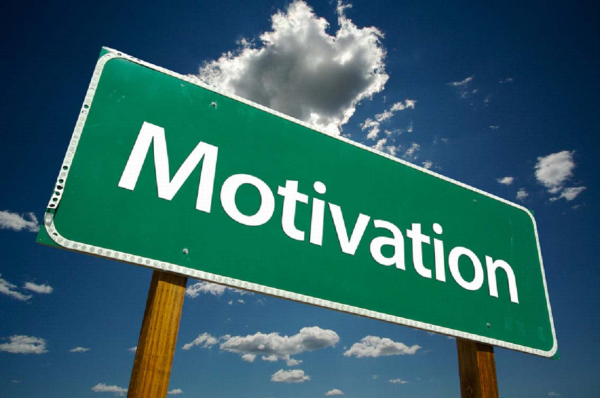 Schools generally like to use different kinds of programs for students of different ages. The type of school show that appeals to k-2 will be viewed very poorly in general by students at a public middle school. Whereas, a school show perfectly suited to a middle school audience may well be way over the heads on kids in primary classes.
Schools generally like to use different kinds of programs for students of different ages. The type of school show that appeals to k-2 will be viewed very poorly in general by students at a public middle school. Whereas, a school show perfectly suited to a middle school audience may well be way over the heads on kids in primary classes.
But in high school another wrinkle adds to the difficulty of arranging programs. High school students follow a widely divergent schedule throughout the day. So scheduling any kind of grade level program is logistically tough. That said, however, high schools do seek out a couple of kinds of programs in particular. Motivational assemblies and anti drug assemblies.
These programs are also used in schools with younger grade levels, but are particularly important at the high school range. Many schools seek out anti drug or anti substance abuse programs in particular because they are perfect for Red Ribbon week activities, and because they may often be paid for through Title One funds.
So, what are we talking about here?
What do we mean by “motivational” programs?
What qualifies as an “anti drug program”?
Well the answers to these questions are a little complicated, and can be extremely diverse.
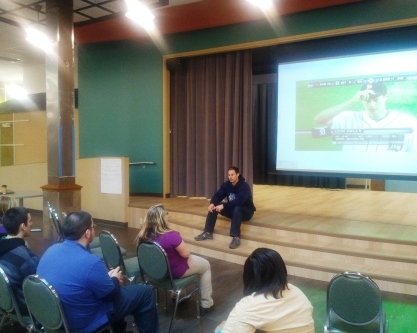 In the case of motivational programs and assemblies, the most common form is the “hero” show. The “hero” show involves a personal appearance by a personality of some kind, most usually from a sports franchise. It often takes the form of a baseball player or basketball player visiting the school, speaking to kids about hard work, core values, perseverance and so on, often with anecdotes drawn from personal experience, and urging kids to struggle to excel. This is usually followed by an autograph signing session. These appearances often also cover the perils of drug abuse, though not always. Frequently, depending on the district, these are the only kind of programs high schools host. Of course, athletes come from a wide diversity of backgrounds and eduction. Some are perfectly suited to these kind of events, and can really provide a well thought out presentation. Others are less well equipped and may provide little more than an opportunity for an hour or so of celebrity worship. Either way, providing kids with examples of success in life in never a bad thing. For more information on these kinds of programs contact your local sports clubs and franchises as the organizations themselves often sponsor such activities.
In the case of motivational programs and assemblies, the most common form is the “hero” show. The “hero” show involves a personal appearance by a personality of some kind, most usually from a sports franchise. It often takes the form of a baseball player or basketball player visiting the school, speaking to kids about hard work, core values, perseverance and so on, often with anecdotes drawn from personal experience, and urging kids to struggle to excel. This is usually followed by an autograph signing session. These appearances often also cover the perils of drug abuse, though not always. Frequently, depending on the district, these are the only kind of programs high schools host. Of course, athletes come from a wide diversity of backgrounds and eduction. Some are perfectly suited to these kind of events, and can really provide a well thought out presentation. Others are less well equipped and may provide little more than an opportunity for an hour or so of celebrity worship. Either way, providing kids with examples of success in life in never a bad thing. For more information on these kinds of programs contact your local sports clubs and franchises as the organizations themselves often sponsor such activities.
Besides sport celebrities, there is also the possibility of using historical characters for motivation, leading by example. Characters such as Martin Luther King, Abraham Lincoln, and Ben Franklin come to mind as good examples of shows for schools that not only provide indirect motivation but also teach and inspire.
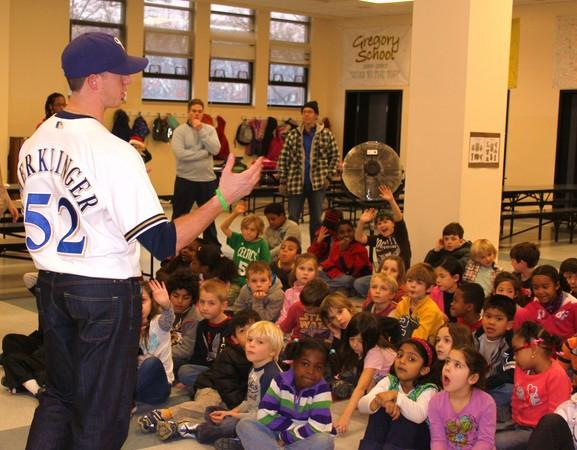 Other programs in this area involve a different kind of speaker. And, make no mistake, a speaker is usually what we are looking at in this arena. Someone who stands in front of the audience and simply talks for an hour is often the norm. It may be an author of self help books, or a recovering addict, or a clinical psychologist with expertise in motivating teens. There is a whole world of speakers available all willing to visit your school for the right fee. Some are good and some are less so. This is one of the most amorphous areas of school assemblies, since so many different individuals use so many widely disparate techniques to get the message across. Referrals are a good way to hedge your bets.
Other programs in this area involve a different kind of speaker. And, make no mistake, a speaker is usually what we are looking at in this arena. Someone who stands in front of the audience and simply talks for an hour is often the norm. It may be an author of self help books, or a recovering addict, or a clinical psychologist with expertise in motivating teens. There is a whole world of speakers available all willing to visit your school for the right fee. Some are good and some are less so. This is one of the most amorphous areas of school assemblies, since so many different individuals use so many widely disparate techniques to get the message across. Referrals are a good way to hedge your bets.
Much of the same can be said for anti drug abuse programs. While speakers and athletes tend to be the most popular choices for older kids, there are many different programs available for elementary and middle schools, running the full gamut of entertainment options as vehicles to convey the message that drugs are bad. Everyone from ventriloquists to clowns to BMX bikers to magicians and jugglers will claim to have a program for you specifically designed to motivate kids and keep them off drugs. This area is particularly rife with that species referred to in earlier entries as “the magic show in drag”.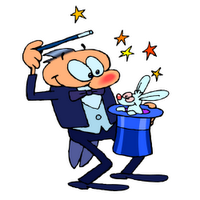
In essence, since the field is so amorphous and hard to quantify with fact, it is rife with charlatan entertainers providing very fun filled school shows that, none the less, provide very little actual useful content for opposing the spread of drugs. This is not to say that is always the case, or to say that such shows are bad. Sometimes a light piece of entertainment containing a few select key words thrown in from time to time may be exactly the right choice for capping a week where the teachers themselves have already done the hard work with getting the message across.
But for other schools, wanting a program of real substance, scheduling such a piece and then discovering it is nothing more than entertainment with a few coded words and phrases scattered about can 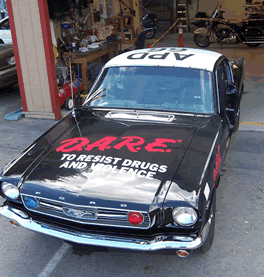 be a big disappointment. On the other hand, it may pay off to contact local hospitals and clinics who may very well have school programs dealing with an anti drug abuse message available free of charge. And don't forget the DARE programs run by police forces across the country,
be a big disappointment. On the other hand, it may pay off to contact local hospitals and clinics who may very well have school programs dealing with an anti drug abuse message available free of charge. And don't forget the DARE programs run by police forces across the country,
So when it comes to motivational school programs and anti drug shows, know what you are trying to accomplish, and then do your homework. Get referrals and references. You will reap the benefits of this work on the day of the show. Oh, and one last tip... if you are looking for something for Red Ribbon week (usually in October), look early. As with any specific date (Presidents Day, Earth Day, Martin Luther Kings birthday etc) the shows pertaining to this particular theme will boom up quickly.
Geoff Beauchamp is the Regional Manager of Mobile Ed Productions where "Education Through Entertainment" has been the guiding principal since 1979. Mobile Ed Productions produces and markets quality educational school assembly programs in the fields of science, history, writing, astronomy, natural science, mathematics, character issues and a variety of other curriculum based areas. In addition, Mr. Beauchamp is a professional actor with 30 years of experience in film, television and on stage. He created and still performs occasionally in Mobile Ed's THE LIVING LINCOLN. He also spent ten years coordinating assembly programs for the elementary school where his own children went to school.






